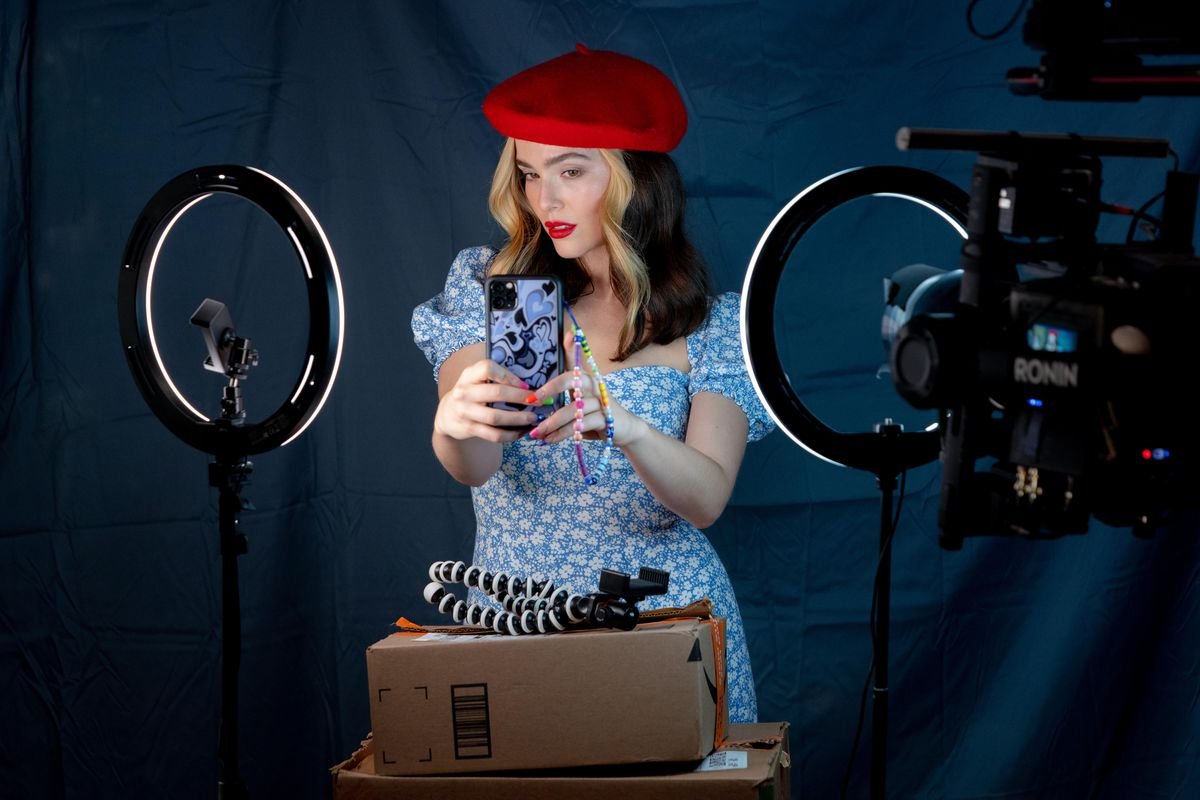“Not Okay” Review
Zoey Deutch stars in “Not Okay” as Danni Sanders, an aspiring writer and social media personality who becomes entangled in a terrible lie of her own making.
With online creators and social media stars dominating modern discourse in popular culture, it’s inevitable that they are satirized in film. Films like “Mainstream” and “Don’t Look Up” have done great work in showcasing the selfish nature of the internet and those that seek to live on it. Now “Not Okay” has joined their ranks as a tragically biting satire of internet fame which is painful at times for all the right reasons.
In “Not Okay,” Danni Sanders (Zoey Deutch) is a lonely magazine writer failing to connect with anybody and not getting much respect for her ideas. To impress everyone, she decides to fake a trip to Paris by photoshopping photos of herself and uploading them to social media. However, when a terrorist attack occurs in Paris, everyone Danni knows believes that she is a survivor of these bombings and encourages her to speak out against violence. As Danni becomes more popular as an activist icon, she finds that the attention she was seeking has its own terrible consequences.
“Not Okay’s” opening literally promised us an unlikable female protagonist but that’s not what I got. Instead, I found Danni to be a tragic figure and a lot of that is due to the strong writing/directing of Quinn Shephard and Zoey Deutch’s layered performance. With films like “Everybody Wants Some!!,” “Zombieland: Double Tap” and a mesmerizing performance in “The Outfit,” Zoey Duetch has been proving herself again and again as one of the best young actors working today.
Throughout the film you empathize with Danni as you understand why she faked the trip. It was because she was lonely and no one around her seemed to care about anything that wasn’t occurring on a smartphone or computer. However, once that fake trip coincided with a tragedy, Danni was given the opportunity to come clean and failed to seize it.
Once she becomes an activist, Danni begins to understand why speaking out against violence is important and manages to befriend leaders of social movements. One of them is Rowan (Mia Issac), a school shooting survivor who is now an advocate of gun-reform. Their friendship is compelling and, in many ways, Dannie changes for the better. But it all originates from a lie.
Issac’s performance is just as compelling as Deutch’s because she properly conveys being a survivor of a school shooting. The frustration she feels about lack of action from legislators and online attacks by alt-right counter-protestors is of perfect contrast to Danni who has never known what it’s like to be a victim of horrific violence.
Quinn Shephard’s direction and writing is truly stellar as the film does a fantastic job commenting on how social media can lead to loneliness and desperate acts for attention. Whenever a person like Danni comes around, exploiting a tragedy for personal gain, Shephard’s message is not only should we hold them accountable but we also need to acknowledge and change the society that is so reliant on online life.
Throughout the film, there’s a sense of dread as you want Danni to do the right thing but you know it’s going to hurt more as the film goes on. If you know tragic stories like this, you know what’s going to happen, but the way it happens still catches you off-guard.
If you’re someone who doesn’t spend much time on social media, “Not Okay” will make you feel good about your decision. However, if you find yourself entranced by the influencer community or are an influencer yourself, “Not Okay” doesn’t ask you to delete your apps and accounts. Instead, it asks you to just turn the phone off for a while and interact with people outside in the fresh air.


